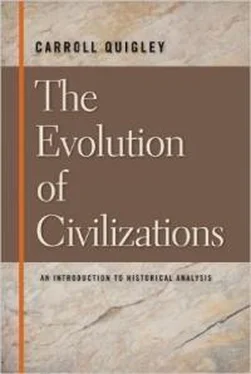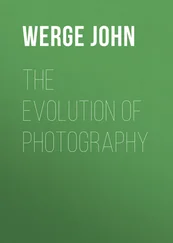This attitude, to which I have referred by the maxim about the social unfolding of truth, is the basis of the Western religious outlook. This outlook believed that religious truth unfolded in time and is not yet complete. The Old Testament, for example was not canceled or replaced by the New Testament but was supplemented by it. And the New Testament was never, in most of the life of Western civilization, regarded as a literal, explicit, and final statement of the truth. Rather, recognition of its truths have to be developed in time, by social action, from basically symbolic statements. Thus the doctrine of the Christian church was unfolded through church councils (like that at Nicaea) and by conferences of learned doctors and clerics, without ever any feeling that the process was finished. The fundamentalist position on biblical interpretation, with its emphasis on the explicit, complete, final, and authoritarian nature of Scripture, is a very late, minority view quite out of step with the Western tradition.
Closely related to this idea of the unfolding of doctrine through the church is the idea of the development of the individual, both in life and in death, toward the Beatific Vision. The same idea about the social (and dialectic) unfolding of truth is at the foundation of Western science. It assumes that science is never static or fully achieved, but pursues a constantly receding goal to which we approach closer and closer from the competition-cooperation of individual scientists, each of whom offers his experiments and theories to be critically reexamined and debated by his fellow scientists in a joint effort to reach a higher (and temporary) consensus.
The same outlook appears in the basic political ideas of the West. These are liberal and not authoritarian. They cannot be authoritarian because no individual or institution has full and final truth; instead a fuller and more complete truth emerges as a guide to social activity from the free debate in free assembly of all men's partial truths. Thus liberalism in this sense is basic in the outlook of the West and goes back, as we indicated earlier, to the dissociation of state and society in the Dark Ages when the former vanished and the latter continued. In its narrowest version this idea appeared as the theory that all men with different outlooks or contributions cooperate together to form something greater than the partial opinions of any of them. This kind of pluralism is assumed by the Polycraticus of John of Salisbury in the twelfth century as much as it is assumed by the United States Constitution in the eighteenth century.
The same kind of pluralist outlook is the real justification of capitalism and of all laissez-faire or pluralist economic systems so typical of the West even in its early period when economic development was taking its first steps. It is the outlook behind the nineteenth century "Community of Interests" that has been exposed to such critical onslaughts in the twentieth century but yet remains as the unstated assumption behind our economic attitudes as they operate in actions.
Thus we see the basic ideology of the West reflected in all aspects of the society, and continuing to influence ideas and actions even after it has been explicitly rejected. It is, for example, behind the theories of such late and "unconventional" thinkers as Darwin or Marx, both of whom believed that the Better emerged from the Good by the superficial struggles of the many to achieve what could never have been reached by any single individual alone. In fact, of these two, Marxist dialectic materialism is rather closer to the Western tradition than Darwin's struggle for existence is. Marx, like his mentor Hegel, was Western in his belief that progress is achieved through struggle, but, like Hegel, he committed the Western sin of pride (the sin of Lucifer) in the intellectual arrogance which expected achievement of a final goal in the material world and in the near future.
Part of the difficulty to be found in analysis of the history of Western civilization arises from the vicissitudes of the "Western tradition." These difficulties were present throughout Western history. In the early period (say up to 1150) the difficulty arose from the fact that the religious outlook and practices of our society were incompatible with the intellectual outlook and philosophy derived from the dualistic ideas of the Platonic and Neoplatonic tradition. Thus, in a figure like Augustine, we find a Christian religious outlook combined with a Platonic philosophic outlook with which it is really not compatible. One consequence of this situation was a great prevalence of dualistic heresies. These were condemned as part of the religious settlement at Nicaea in 325, but they were not really overcome in philosophy until the twelfth century. At this latter time the triumph of moderate realism, as represented by Abelard, Albertus Magnus, or Thomas Aquinas, over exaggerated realism, as represented by St. Anselm or William of Champeaux, represented the achievement, within Christian society, of a philosophy that was compatible with its religious outlook. The official acceptance by the papacy in the early fourteenth century of Thomism, in spite of the attacks of the exaggerated realists, sealed this victory. Such a victory, in accordance with the tradition of the West, was not a victory of one extreme view over another but rather a moderate synthesis of the extremes in a higher unity. Thus the exaggerated realist extremists said that the universal was real and that the individual was an illusion (a position totally incompatible with Christianity and therefore never held, in this extreme form, by any orthodox Christian). At the other end of the spectrum, the nominalists said that the individual was real and that the universal was only a word (or a subjective concept). The Thomistic compromise, which was compatible with Christianity and the Western tradition, said that both the individual and the universal were real. This synthesis disrupted very soon into two extremist positions, represented in philosophy by Scotist realism and Occamite nominalism. The same scission into two extremes was found in religion during the late Middle Ages between these who advocated salvation through good works (like St. Francis of Assisi and Thomas a Kempis) and those who advocated salvation through God's grace (the new ascetics, mystics, and ultimately the Protestants), each group tending to place such emphasis on its own path to salvation as almost to deny the other extreme. Or again, within the church appeared a split between those who emphasized it as a temporal organization (and thus corrupted it) and those who emphasized it as a spiritual group, and thus (like Savonarola, Huss, and Luther) tended to deny its organization. From this it can be seen that the ideology of the Christian West was essentially a moderate one. It was constantly threatened, as moderates always are, by extremism. When these extremists argued for "either-or," the Western tradition answered "both!" But this answer was no sooner given than new appeals by extremists sought to reopen the debate, to destroy the moderates, and to disrupt the synthesis. The extremists from one side (the Left, if you will) based their appeals on individualism, the senses, and materialism, and thus on the Christian insistence on the need of the world and the body. The extremists from the other side (the Right, we might say) based their appeal on society, rationalism, and spirituality, and thus on the Christian emphasis on the soul, God's grace, and the perfect rationality of God. Ultimately, in the history of ideas, the former extreme goes back to the Hebrews and to the Ionian atomists, while the latter extreme goes back to Persian Zoroastrianism and to the Pythagorean rationalists, above all, to Plato. Within Western religious history (and the history of the church, which is both temporal and spiritual) these two extremes have been represented by corruption and by dualistic heresy. It is easy for us to see how corruption (that is, too great emphasis on the material and temporal aspect) destroys religion, but it is not so easy for many to see how too great spirituality (that is, too great emphasis on the nonmaterial and eternal aspect) can destroy religion. This condition arises because religion is a linking (from ligare, to join together, as in English "ligament" or "ligature") of the two extremes (man and God) that cannot exist if either extremity is absent.
Читать дальше










